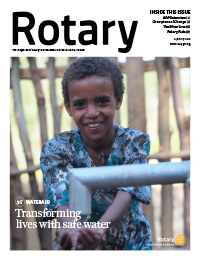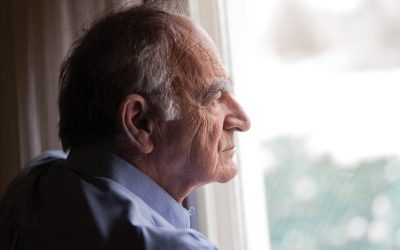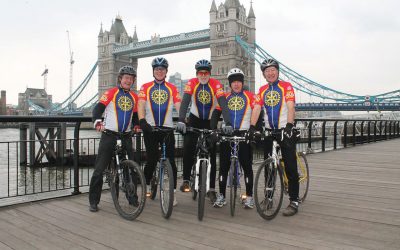Water is essential for hygiene and sanitation, and WaterAid works with some of the most marginalised communities to set up practical and sustainable projects that meet a real need.
I wanted to find out more about the organisation how Rotary is involved so I met with Chris Wainwright, WaterAid’s Head of Communications.
I started by asking Chris the mechanics behind the projects and as the interview progressed his knowledge, commitment and enthusiasm for their work was impressive.
WaterAid works with local partners in 27 counties globally to get water to communities in need. The way the water is delivered is dependent on many local factors, as Chris said: “No one size fits all, we work with local communities, local government and NGO’s to find a bespoke solution to deliver water. We look at the local infrastructure and discuss ways in which we can get safe water to where it is required.”
In Ethiopia for example, although it is one of the fastest developing economies in Africa, 44 million people, over half of the population, have no access to safe water in the rural areas. So far, WaterAid has helped with over 50 projects in there and the delivery of water in a remote part of Ethiopia was achieved with a gravity fed system down a mountain rather than just drilling a well with a tap stand: a need met on a local level using natural resources.
Chris told me that wherever the charity has supplied water the health and wellbeing of that community has improved and Chris explained that the funding for their projects can come from a number of sources, one of which was our own Department for International Development along with grants from the benefitting countries and donations.
In Bangladesh WaterAid recently partnered with the Department for International Development on a number of projects and that country is one of the largest recipients of WaterAid in 2014. Here over 23.5 million people lack access to improved water sources and flooding from monsoon rains each year makes work there to improve sanitation all the more difficult.
“Being old I used to spend a long time fetching water hence having body pains. Now it’s a thing of the past.”
The H&M Conscious Foundation, the philanthropic arm of the fashion retailer, helps to fund WaterAid’s Global Program for providing clean water, sanitation and hygiene education to schools with a grant of three million Swedish Krona over three years.
The project supplies water and sanitation facilities to schools and will reach 250,000 students in some of the world’s poorest countries by the end of the partnership. This partnership is part of a programme aiming to meet the UN Sustainable Development Goals.
We went on to discuss the Millennium Development Goals, and Chris informed me that the CEO of WaterAid Barbara Frost had addressed the UN Assembly on water issues and they were working at a high level on the sustainable development goals for 2030.
I was interested in how Rotary had got involved with them and Chris told me the In terms of how Rotary and WaterAid came together, Chris explained that the relationship developed from a meeting with the founder of the Glastonbury Festival, Michael Eavis, 25 years ago and they have since partnered projects such as one in Tanzania called ‘To Be a Girl’ where Rotary had contributed £50,000 to help give 1.5 million people access to clean water, another in Zambia where Rotary had contributed £100k, and a recent project in Madagascar, which was supported by the Rotary Club of Lincoln, all of which were aided with match funding from The Rotary Foundation.
This winter WaterAid is launching a campaign, in line with the present Sustainable Development Goals, to help with maternal and child health. The programme will focus on safe water and sanitation for mothers, and is aimed at reducing child mortality for the under fives. We also touched on the Ebola crisis in West Africa where WaterAid is helping with hygiene to save lives and prevent the spread of the disease.
Chris also mentioned how the combined help of Rotary and WaterAid can really make a difference. One example is Queen Kwisi, a 70 year old who has lived in the Lingison village of Mungulube Zone, Zambia for many years. Despite just being along the main trunk road to the district administration offices, the village has never benefitted from a government initiated water project.
Queen used to draw water from an unprotected shallow well about one kilometre away. With assistance from a Rotary funded WaterAid project, the village now has a new accessible water point.
Queen said: “I am old and even I am able to lift the pump. The pump is installed in a manner that even children can draw water, and the colour of water is clean with no dirt. Being old I used to spend a long time fetching water hence having body pains. Now it’s a thing of the past, I am covering less than 50 metres to the water point and am now able to do other work”.
As we were winding up the interview Chris went on to remark: “WaterAid is grateful for all the help and support Rotary has given us over the years. We do not take what Rotary and Rotarians do lightly; the commitment is very much appreciated, thank you.”



























































